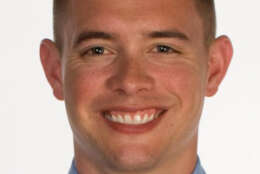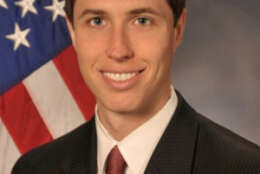Hiring/Retention
-
Dickie George, the technical director of the Information Assurance Directorate at the National Security Agency, joined the Federal Drive to discuss the agency\'s robust hiring efforts, including in the cyber realm.
August 15, 2011 -
Jeff Neal is the former Chief Human Capital Officer of the Department of Homeland Security.
August 10, 2011 -
Diane Cochran has worked in the Departments of the Navy, Air Force, Energy, and the Office of Personnel Management, at a variety of locations in the continental United States and abroad. She shares what it\'s like to make the transition to working and living in D.C.
August 08, 2011 -
President Barack Obama plans to unveil a $120 million package of new tax incentives for businesses that hire U.S. veterans returning from Iraq and Afghanistan.
August 05, 2011 -
The Office of Personnel Management\'s proposed regulations would make it easier for agencies to recruit and train students and recent graduates without going through the competitive hiring process.
August 04, 2011 -
Tom Shoop, editor-in-chief of Government Executive Magazine, explains how this move will affect DHS hiring.
July 29, 2011 -
Tim McManus, vice president for Education and Outreach at the Partnership for Public Service, said he thinks there are some things you can do to make hiring simpler at your agency.
July 29, 2011 -
Two chief human capital officers say Millenials - people born in 1980 or later - bring passion and enthusiasm to the federal workplace but also require guidance and mentorship.
July 29, 2011 -
John Palguta of the Partnership for Public Service dispels the myth that feds have a better chance of dying than being fired from their workplace and gives data to support why recent reports are not entirely accurate.
July 26, 2011 -
Since 2009, Steven Fyfe has been a transition patient advocate at the D.C. Veterans Affairs Medical Center. His job is to help seriously ill or injured vets when they return from active duty.
July 25, 2011 -
Ayesha Edwards is a management and program analyst at the Department of Education.
July 25, 2011 -
Scott Thomas is a project manager for the GPS Directorate at the Space and Missile Center at the Los Angeles Air Force Base.
July 25, 2011 -
A Federal News Radio survey reveals a rift between the generations in the federal workforce. Longer-term feds consider their younger counterparts entitled and lacking communication skills, while new feds see their older coworkers as unmotivated and not adaptable.
July 25, 2011 -
The multi-generational workforce - with its differences in work styles, job expectations and technology use - requires federal managers to rethink their relationships with their employees.
July 25, 2011 -
People in their 20s and 30s - often called Generation X\'ers, Y\'ers and Millenials - are sparking a cultural transformation in the federal workplace. The series explores the relationship between long-time and newer coworkers, and how the generations can help each other.
July 25, 2011



